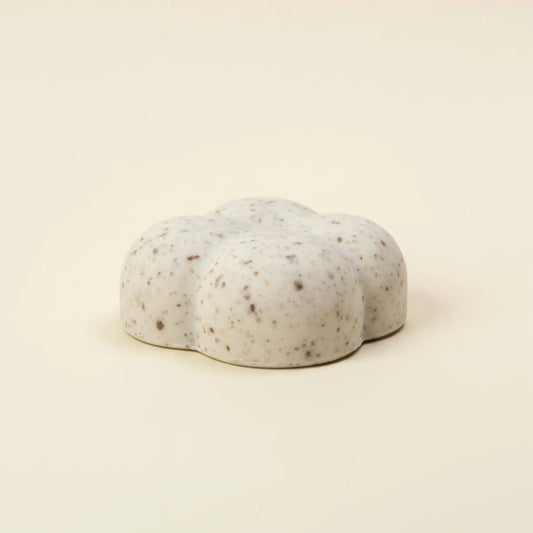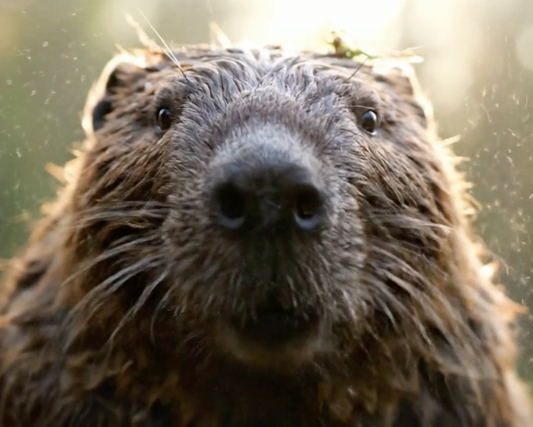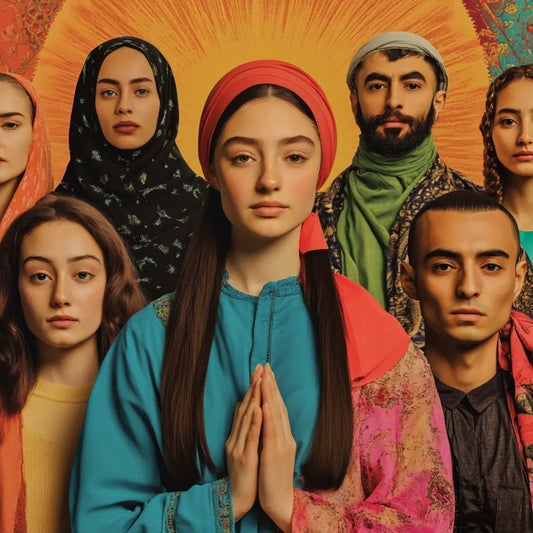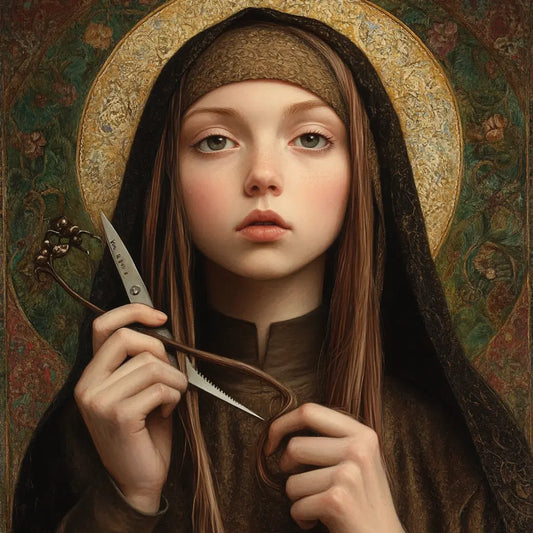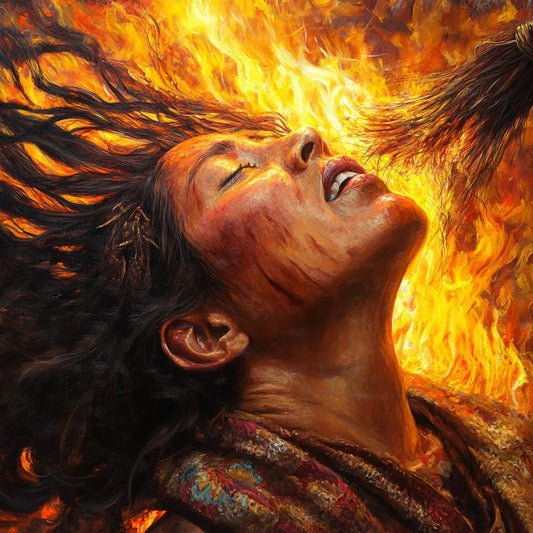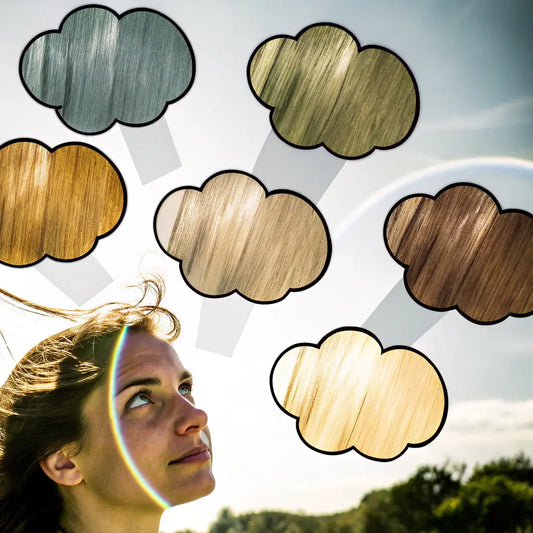Hair has always been more than just a physical feature. Across cultures and eras, it has been closely linked to beliefs about luck, power, and even curses. Whether it's the fear that someone will steal your hair to use in spells or superstitions about cutting your hair on certain days, the locks on our heads have a lot more meaning than they seem at first glance. In this article, we'll explore some little-known legends about cursed hair, superstitions from around the world, and even modern-day beliefs that still influence how we view our hair. You might be surprised to learn just how much bad luck can be hidden behind a single strand of hair.

Cursed Hair Legends and Supernatural Beliefs
Throughout history, hair has been at the center of many terrifying and mysterious legends. From spells to bad omens, cursed hair appears in stories all over the world, forming beliefs that persist today.
Hair in folklore: curses and spells
In European folklore, hair has long been considered a powerful tool for sorcery and witchcraft. Witches were believed to use a person's hair to control their fate, manipulate their health, or curse them with bad luck. This belief was so strong that in the 16th and 17th centuries, people would often burn their hair to prevent witches from taking it and using it in black magic rituals.
- Interesting fact: During the Salem Witch Trials (1692-1693), over 200 people were accused of witchcraft, and several cases involved using hair to curse neighbors or loved ones.

In Japan, the myth of Onryo – vengeful female spirits who return from the afterlife to exact revenge – is closely associated with hair symbolism. These spirits are often depicted with long, unkempt hair, symbolizing their unresolved anger and curses on the living. It is believed that if a woman dies unhappy or having suffered injustice, her hair becomes a sign of revenge, bringing misfortune to those who wronged her.

Hair theft as a source of bad luck
In many cultures, hair was considered a spiritual power, and its theft was considered a serious crime. In medieval Europe , there was a deep-rooted fear that if someone took your hair, they would be able to control you through black magic. Women often guarded their hair carefully, fearing that witches or enemies would steal it and use it against them.
- An unexpected number: By the 15th century, it was recorded that 1 in 4 European women destroyed or buried their hair to protect it from possible misappropriation for evil purposes.

In Africa, hair was also a source of both pride and caution. In some African tribes, it was customary to collect hair that had fallen out to prevent it from falling into the hands of those with ill intentions. If hair was stolen, it was believed that it could be used in rituals that would harm the owner, causing illness or bad luck.
The Biblical Curse on Hair: The Story of Samson and Delilah
One of the most famous stories of cursed hair comes from the Bible, the story of Samson and Delilah . Samson, whose great strength was linked to his long, uncut hair, lost his strength when Delilah betrayed him and cut off his hair. The story reflects a long-standing belief in many cultures that cutting one's hair can diminish one's power or bring misfortune.
- Interesting fact: Some scholars suggest that the story of Samson may have influenced other historical beliefs about the mystical properties of hair in both the Middle East and Europe.
Simple superstitions about hair in different cultures
Superstitions about hair are widespread and exist in many cultures. From beliefs about cutting hair to the mysterious appearance of hair in unexpected places, these superstitions still have an impact in today's world.
Haircut on certain days
The timing of hair cutting has long been associated with superstition. For example, in India , many people avoid cutting their hair on Tuesdays or Saturdays , believing that doing so will bring misfortune, including financial loss or illness. Indeed, in many rural areas, barbershops are still closed on these days to honor this tradition.
- A surprising number: A 2018 study found that 47% of Indian families adhere to traditional beliefs by avoiding hair cuts on certain days, especially Tuesdays and Saturdays.

Similarly, in Turkey , getting a haircut after sunset is considered bad luck. This belief stems from the idea that nighttime beauty treatments can attract evil spirits.
Hair loss as a sign of bad luck
In many cultures, sudden or unexplained hair loss is considered a sign of misfortune or even death. In China , finding hair in food, especially when eating in public, is considered a bad omen. Some believe it can indicate impending misfortune, including financial problems or family conflict.

In Ireland, a superstition holds that if a person suddenly starts losing their hair, it is a sign that they will soon receive bad news or suffer a personal loss. Similarly, in Sicily , unexplained hair loss was once considered a sign that someone was gossiping about you, which could lead to shame or scandal.

- Historical Note: During the Black Death epidemic of the 14th century, hair loss was one of the early symptoms of the disease. This led to the belief that sudden hair loss was a harbinger of impending death, which persisted in superstition long after the plague had passed.
Hair and death rituals
Hair plays an important role in death and mourning rituals in many cultures. In Hinduism , men shave their heads after the death of a close family member as a cleansing ritual, showing respect and renouncing earthly ties. This act is believed to help the deceased's soul escape and cleanse the mourner of any remaining bad luck.

- Interesting fact: In Hindu tradition, nearly 80% of mourning men participate in this ritualistic head-shaving procedure as a sign of respect and to ward off bad luck.
In Mexico, hair is sometimes included in offerings for the dead during the Day of the Dead festival. It is believed to symbolize the continuity of life and honor the memory of the dead.

How modern hair superstitions persist
Despite scientific advances and rational thinking, superstitions about hair still exist in modern societies. Whether it's cultural traditions or personal experiences, many people still believe in the mystical power of hair.
Haircuts and success
One of the surviving superstitions is the belief that the timing of a haircut can improve or worsen one's luck. For example, in Thailand , it is believed that cutting one's hair on one's birthday means reducing one's luck for the coming year. As a result, many people avoid getting haircuts on their birthdays and instead cut their hair before the new year to start with fresh energy.

- Unexpected statistic: A 2019 study found that 34% of Thai women avoid cutting their hair in their birthday month, believing it could bring bad luck.
In the United States, many people cut their hair after significant life events, such as divorce or job loss, in the belief that it will help them “get rid” of bad energy and start over. Although this has no deep cultural roots, the symbolic power of hair is still believed in in modern society.
The Power of Hair in Modern Magic and Rituals
Hair is still used in modern magic and rituals. In Wiccan traditions, hair is often used in spells for protection, love, or healing. Practitioners believe that using one's own or another person's hair enhances the power of the spell by creating a direct connection to the person.

In voodoo practices, hair is sometimes used to create dolls or amulets. It is believed that incorporating hair into a doll can influence the actions or well-being of that person. Although these practices are often misunderstood or exaggerated in popular culture, hair continues to be an important part of traditional and spiritual practices.
Myth debunking or interesting facts
- Myth: Hair continues to grow after death.
Fact: Hair does not grow after death. The contraction and retraction of the skin creates the illusion that the hair appears longer. - Fun fact: In Victorian England, it was common to exchange locks of hair as a symbol of love. People believed that wearing their loved one's hair close to their heart would protect them from misfortune.
- Myth: Getting a haircut during a full moon promotes faster hair growth.
Fact: There is no scientific evidence that the phases of the moon affect hair growth, but the belief persists, especially in rural communities around the world. - Fun fact: In some South American countries, it is believed that combing your hair at night attracts bad dreams. Some people avoid combing their hair after sunset to avoid inviting spirits.
- Myth: If you find a hair in your food, it's a sign of bad luck.
Fact: While some cultures believe this, it's usually just an unfortunate coincidence. However, some still believe it could be a sign of impending disaster.

Practical tips or solutions
- Dispose of your hair carefully: If you are superstitious, avoid leaving your hair cut in public. Some traditions recommend burning or burying your hair to ward off bad luck.
- Respect cultural traditions: If you are traveling or living in a country where cultural beliefs are strongly held, respect local traditions. Avoid getting haircuts on forbidden days or at certain times to avoid anxiety.
- Take care of your hair health: Instead of worrying about bad signs, focus on your hair health by using nourishing products and reducing stress, which can affect both your hair and your overall well-being.
- Start over with a new hairstyle: Many people choose to get a new hairstyle after a major life change as a symbolic way to start over. Embrace this tradition to help clear away any remaining negative energy.
- Protect your energy: If you're worried that someone might use your hair against you, you might consider adopting simple traditions like collecting your hair and disposing of it properly.

Frequently asked questions
- Can someone curse me using my hair?
While many cultures believe that hair can be used to cast curses, there is no scientific evidence for this. However, some people still perform rituals involving hair for spiritual reasons. - Is it bad luck to cut your hair at night?
Some cultures believe that cutting your hair at night attracts evil spirits or bad luck. Whether you believe in this or not, it's best to follow traditions that give you peace of mind. - Does burning hair remove bad luck?
Burning hair is a tradition in many cultures to protect against its use in curses. Although there is no scientific evidence for this, it is a common practice among people who believe in these beliefs. - Why is it bad to cut your hair on certain days?
In some cultures, certain days are considered unlucky to cut hair because they are associated with bad omens or misfortune. These beliefs often have roots in ancient traditions. - Do moon phases really affect hair growth?
There is no evidence that the phases of the moon affect hair growth, but many people still hold onto this superstition, believing that the full moon enhances the body's natural cycles.

Conclusion
From cursed hair in folklore to modern superstitions about cutting your hair on certain days, hair has always held a mysterious power in people’s beliefs. Whether through cultural rituals, bad omens, or magical practices, hair has long been considered a tool that can influence fate and luck. For women, hair is more than just a fashion statement—it’s a part of their personal identity, tied to ancient beliefs about luck, protection, and transformation. Embrace your hair, whether you believe in its supernatural powers or simply enjoy its beauty, and let it tell your unique story.





